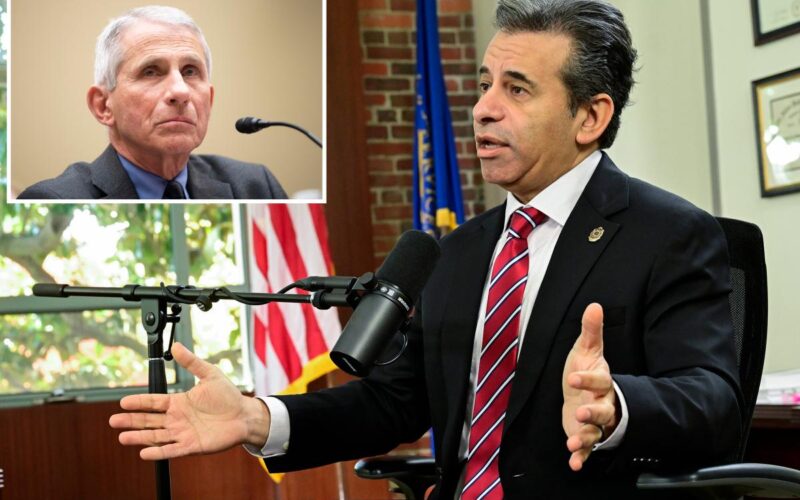“Powerful” new treatments for various types of cancer and neurodegenerative disorders, such as Alzheimer’s, Parkinson’s, and ALS, will likely get rolled out within the next few years, Food and Drug Administration Commissioner Dr. Marty Makary predicted to “Pod Force One.”
Makary touted the FDA’s push to streamline the drug approval process and how his team has been carefully watching promising treatments in a bid to get them over the finish line as quickly as possible.
“In our term, in this administration, you’re going to see a powerful treatment for certain types of cancer, I believe, for neurodegenerative disorders, some, in particular,” Makary, an experienced surgical oncologist, told host Miranda Devine.
“Alzheimer’s, Parkinson’s, ALS,” he added when pressed for specific disorders. “We are going into the pipeline searching for powerful cures.”
The FDA’s procedures to review new drugs are notoriously cumbersome. New drugs can cost between $2 to $3 billion many attempts at making them fail, according to one study.
“Right now, we have a process where it takes 10 to 12 years for a drug to come to market. It makes no sense, and so we’re challenging that assumption,” Makary explained. “We have a new program to get decisions out in weeks.”
Despite his efforts to get cures out the door faster, Makary stressed that safety is still a “top priority.”
“We need to partner with these drugmakers to deliver more cures to the American people, and yet keep our review process impeccably independent, scientifically independent,” he said.
To get cures to the market quicker, Makary is taking aim at bureaucratic snarls, such as paperwork issues and minor technicalities that can bog down the approval process.
Part of this also involves having the FDA take a more active role in reaching out to scientists who are working on potentially promising cures and helping them navigate the complex approval process.
One example he cited was a recent study in the New England Journal of Medicine that indicated certain kids “were being cured of child deafness.”
“It was a gene therapy with a device, and these kids were cured sometimes, cured,” he recounted. “Well, what did we do? We contacted the company. We saw the study. We immediately reached out, and we gave them a voucher for a priority review in weeks.”
“We cannot take this passive, receive-only mode that bureaucracies tend to take. We should not be a stingy librarian sending applications back because the margins are incorrect.”
During President Trump’s first term, his administration proved that it is possible to significantly speed up the approval process with “Operation Warp Speed,” which saw COVID-19 vaccines rolled out within less than a year.
Typically timeline for developing vaccines has been between 5 to 10 years.
Makary has been skeptical over past policies on the COVID-19 shots and has supported the Trump administration’s decision earlier to stop recommending it for healthy children and pregnant individuals.
But he’s keen on tearing down unnecessary bureaucratic hurdles that can slow down the advancement of promising cures.
“I want to see a treatment for PTSD. We have veterans who are still suffering from these wars. I want to see a universal flu shot so you don’t come in every year and we guess what the strain is,” he stressed.
“We want to see powerful new treatments.”
Another key step Makary has taken is eliminating animal testing requirements, something that ginned up controversy under some of his predecessors.
Infamously, Dr. Anthony Fauci had taken heat over funding for painful experiments on beagle puppies at the National Institute of Allergy and Infectious Diseases (NIAID), which he led from 1984 to 2022.
“It turns out computational modeling is better in testing drugs than animal testing,” Makary said.
“Some drugs get held up in animal testing where they have no toxicity in humans,” the FDA commissioner explained. “So, we may be missing out on some cures. So, we’re using better techniques, including organ cell lines, where the drugs can be tested in the lab on those cells.”








